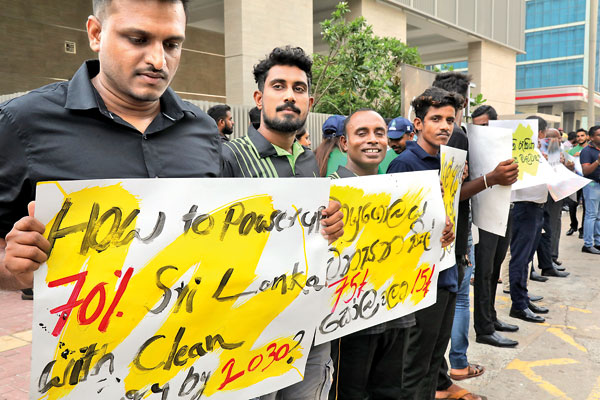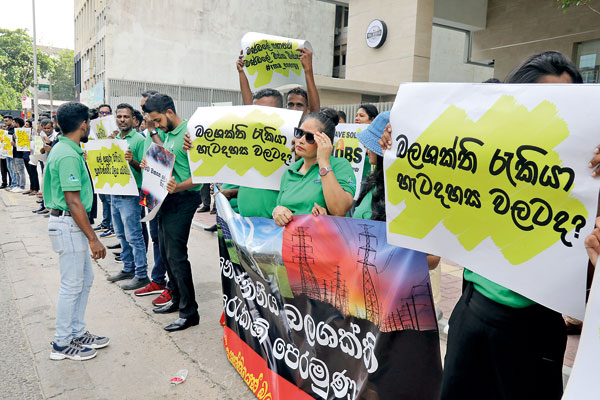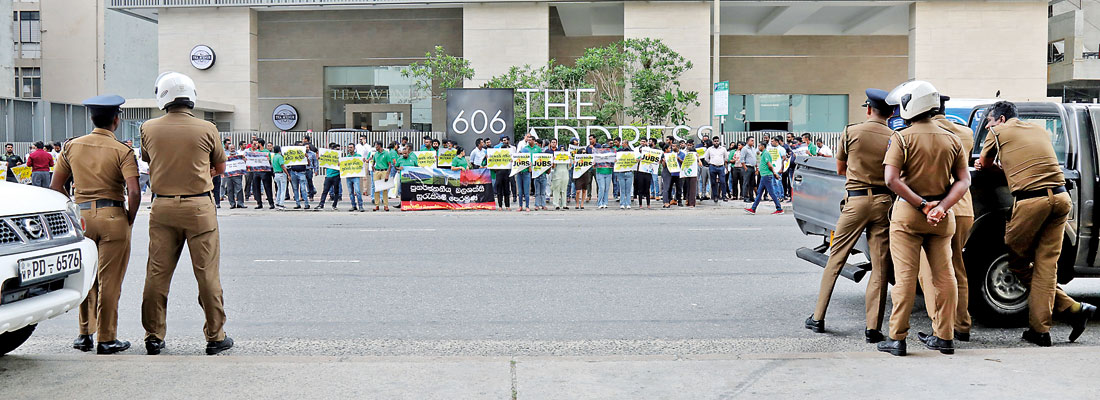News
Reduction in rooftop solar feed-in tariffs- a ‘sundown’ for the industry?
View(s):The Solar Industries Association (SIA), representing over 1,000 companies and 40,000 workers in Sri Lanka’s rooftop solar sector, has expressed its concern regarding the proposed drastic reduction in rooftop solar feed-in tariffs.
The decision will have catastrophic consequences for the industry, Sri Lanka’s renewable energy goals and the broader economy, the Association warned in a joint press release signed by SIA’s President Javid Kamil and Secretary S. Sanjeevan.
After the proposal was submitted to the cabinet some of the companies have already started retrenching staff including workers involved in installation.
The Association pointed out that the proposed tariff reduction will destabilise the industry, leading to the collapse of numerous SMEs and the potential loss of 40,000 jobs. Over 100,000 existing rooftop solar connections—primarily owned by middle-class families and pensioners—will be financially impacted, causing severe economic distress.

The ripple effects of this collapse will extend beyond the solar industry, affecting supporting industries, financial institutions, and local economies.
“Frequent and significant tariff fluctuations will deter both local and foreign investments in renewable energy. This instability threatens Sri Lanka’s ability to meet its renewable energy targets and transition toward energy independence. Without a stable and predictable policy framework, long-term investments in the sector will diminish, setting back the country’s progress in clean energy adoption,” the Association pointed out.
“If energy is not procured from rooftop solar, the utility will have to purchase electricity at a significantly higher cost from thermal and diesel generation plants. This will increase generation costs, lead to higher electricity tariffs for consumers and place additional financial strain on the national economy”, the Association added.

The Association pointed out that with unviable tariffs, companies will struggle to provide essential Operations and Maintenance (O&M) for the existing 100,000 rooftop solar connections. This will compromise grid stability and the longevity of these installations, putting at risk the reliability of power supply for thousands of homes and businesses.
The Association added that the proposed tariff reduction is based on flawed assumptions and that the the proposal fails to acknowledge the distinct advantages of rooftop solar.
The Association has urged President Anura Kumara Dissanayake to reject the proposed tariff reductions that will negatively impact the solar industry and the economy, conduct a transparent and independent investigation into the recent power outage, recognise the economic and social benefits of rooftop solar and establish a stable, predictable policy framework and implement demand-side management and time-of-use tariffs to optimise grid usage.
They have also called the President to direct the CEB to install battery storage systems and adopt weather forecasting technology to enhance grid resilience and consider the economic impact of alternative energy procurement, as purchasing power from thermal and diesel sources will lead to significantly higher costs for the country.

Protestors raise concerns Pix by Nilan Maligaspe
The Cabinet paper had been submitted by the Power and Energy Minister Kumara Jayakody after a 12-member committee was appointed to review and make recommendations on the Renewable Energy Tariffs for agreements signed in year 2025.
Among the recommendations were to implement the revised tariffs for the procurement of electricity from renewable energy sources under Standardised Power Purchase Agreements signed on or after the date of the Cabinet Decision, until the end of year 2025 and to implement the tariffs for procurement of electricity from Rooftop Solar PV Systems from the date of the Cabinet Decision, until the end of the year.
The revised tariff will be applicable to all applicants who pay the Rooftop Solar PV System clearance processing fee on or after the date of this Cabinet Decision.
Another proposal was to implement the tariffs with a Battery Energy Storage System for a period of six months from the date of this Cabinet Decision (and review the tariffs thereafter) and to offer both new and existing solar PV generation facilities already operational, to shift their export schedules to peak hours (6.30pm – 10.30pm) under the conditions given.
The best way to say that you found the home of your dreams is by finding it on Hitad.lk. We have listings for apartments for sale or rent in Sri Lanka, no matter what locale you're looking for! Whether you live in Colombo, Galle, Kandy, Matara, Jaffna and more - we've got them all!

